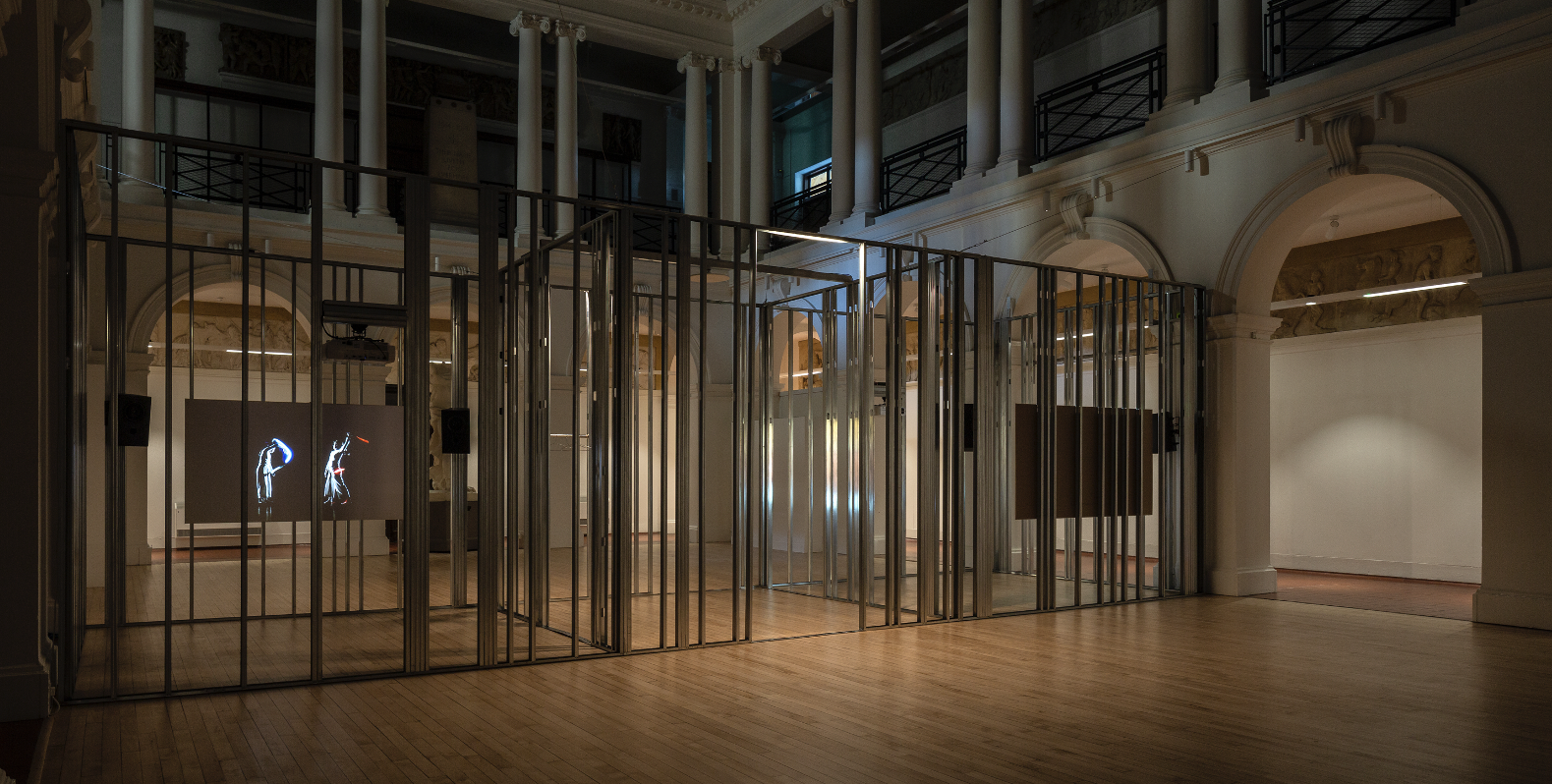Habits of Assembly
2019
Part of Edinburgh Art Festival 2019 Commission Programme/Summer at ECA
Part of Edinburgh Art Festival 2019 Commission Programme/Summer at ECA
At the turn of the twentieth century the motion studies of Frank
and Lillian Gilbreth employed the camera to map the movements comprising an
action across time. Employed in the analysis of labour these techniques shifted
management from a set of verbal orders delivered by a manager to calculable metrics
ordering movement in time. Through the use of a camera and a light on the
worker’s finger the Gilbreth’s made legible hitherto unseen actions carried out
in the completion of a task. By measuring the gestural components of a task according
to time, variations of assemblage were replaced by ideally efficient iterations.


Over the past century, data capture and assessment has increased
exponentially, moving from the factory floor into daily life. Motion
and gait assessment are described as the next frontier within rapidly growing
image processing industries (Yang and Murgia 2019). Seeking methods
antithetical to the coding of bodies and movement, Sworn turned to task-based
and somatic dance practices developed in the 1960s which foregrounded the body
as an integral object of study that when observed can relate back to us our
social conditioning, confinements, limits and possibilities (Wood 2007). Interested
in how an ethos of efficiency has entered private life, Sworn approached the
dancer Anna Halprin’s use of a grocery list as a score, as a practical tool to
analyse regimes of doing.
Interested in installation for its physically situating capacity, Sworn employed it to model the enmeshment of bodies and popular management devices.
Yang, Y and Murgia, M (2019) “Facial recognition: how China cornered the surveillance market.” Financial Times 6th December.
Wood, C (2007) Yvonne Rainer The Mind Is A Muscle: The Mind Is a Muscle London: Afterall Books.
Interested in installation for its physically situating capacity, Sworn employed it to model the enmeshment of bodies and popular management devices.
Yang, Y and Murgia, M (2019) “Facial recognition: how China cornered the surveillance market.” Financial Times 6th December.
Wood, C (2007) Yvonne Rainer The Mind Is A Muscle: The Mind Is a Muscle London: Afterall Books.